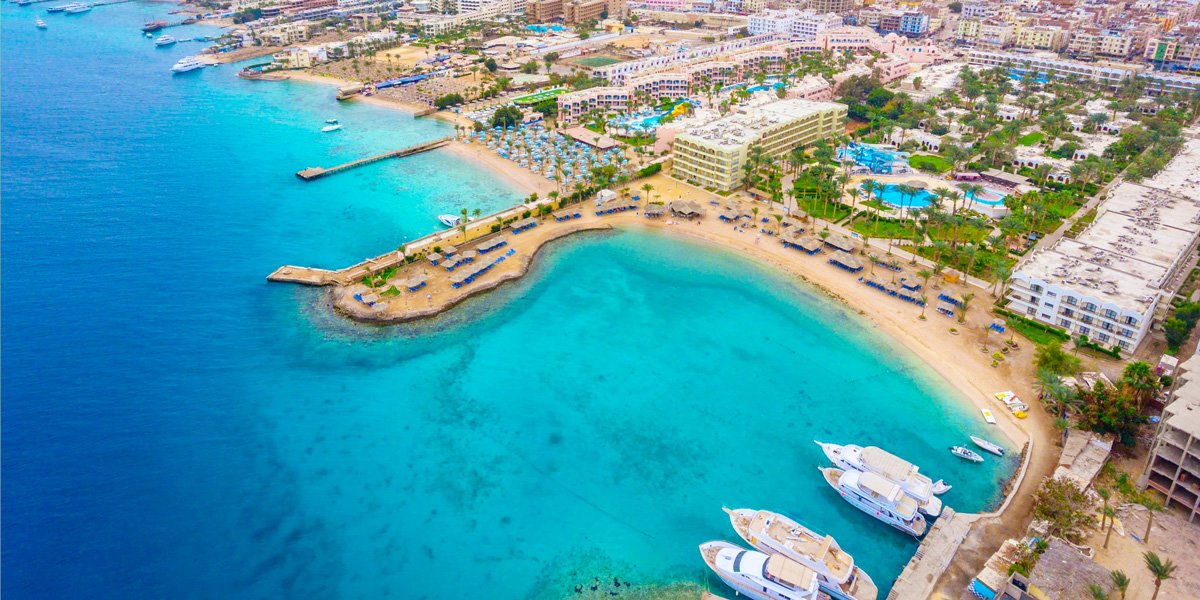
History
Ancient history and settlement.
The village, which later evolved into what is now the city of Hurghada, was first settled in 1905. It acquired its name from a plant which has grown there naturally since the days of Ancient Egypt. Originally Hurghada was a fishing village. Oil was discovered in the area in 1913, and in 1921 British oil companies began its production and export. During the reign of King Farouk a recreational center was built in the city, but after President Nasser’s nationalization of Egypt’s industries it was reallocated to the Egyptian Armed Forces.

Geography
Hurghada has a subtropical-desert climate (Köppen climate classification: BWh), with mild-warm winters and hot to very hot summers. Temperatures in the period December–January–February are warm, but in the evenings temperature may drop from an average 20 Celsius degrees to 10. November, March and April are comfortably warm. May and October are hot and the period from June to September is very hot. The average annual temperature of the sea is 24 °C (75 °F), ranging from 21 °C (70 °F) in February and March to 28 °C (82 °F) in August.
The highest temperature recorded occurred on June 12, 2013 and was 46 °C (115 °F), while the lowest record temperature was recorded on February 2, 1993 and was 0 °C (32 °F).


